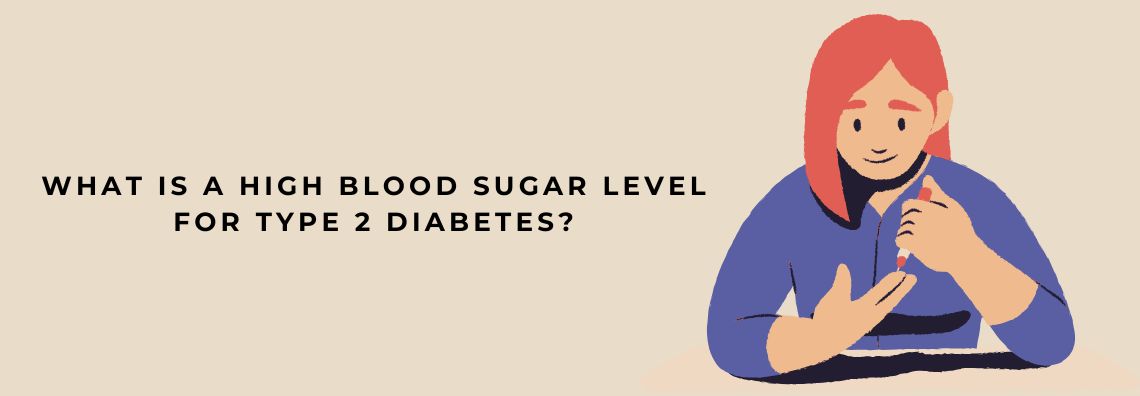
For people with type 2 diabetes, a fasting blood sugar level of 126 mg/dL (7.0 mmol/L) or higher on two separate tests or a random blood sugar level of 200 mg/dL (11.1 mmol/L) or higher is considered high. Normal fasting blood sugar is less than 100mg/dL.
Learn more about type 2 diabetes and things to consider while taking care of a person with high blood sugar levels. Type 2 diabetes happens when the body can’t use insulin properly and without treatment, it can cause many health issues including kidney disease and stroke.
What Are The Symptoms And Causes?
Symptoms of type 2 diabetes include the following:
- Increased thirst (polydipsia)
- Feeling hungrier than usual
- Fatigue
- Slow healing of cuts or sores
- Numbness in hands or feet
- Dry skin
- Blurred vision
These symptoms need the attention of an expert. The main cause behind type 2 diabetes is insulin resistance. Insulin resistance happens when cells in the muscles, fat and liver don’t respond as they should to insulin.
Insulin is a hormone that the pancreas makes and is essential for life and regulating blood sugar levels. If your body is not responding to insulin properly, the pancreas will have to make more insulin to try to overcome the increasing blood glucose levels. If cells become too resistant to insulin and your pancreas can’t make enough insulin to overcome it, it leads to type 2 diabetes. Diabetes treatment is essential to avoid further damage to the body.
Here are several factors that can lead to insulin resistance, including:
- Genetics
- Certain medications
- Physical inactivity
- Hormonal disorders like hypothyroidism and Cushing syndrome
- Chronic stress
- Lack of sleep
- Excess body fat
Consult a specialist for advice and start treatment early. Moving ahead we will understand how one can take care of themselves.
Individuals with High Blood Sugar Levels Pay Attention
If you are someone with high blood sugar levels (hyperglycemia) pay attention to the symptoms, monitor the blood sugar regularly and follow your healthcare provider’s advice. Here are some things you need to consider which we will discuss and the diet you need to follow to control your blood sugar levels. Starting with the things you need to consider:
- Regular testing is essential to monitor your blood sugar levels regularly, as directed by your healthcare provider, to track trends and identify patterns.
- Understand your blood sugar targets before and after the means and work with our healthcare professionals to achieve control.
- Promote regular physical activity to help lower blood sugar levels. Coordinate exercise routine with the meals and medication schedule.
- Drink plenty of sugar-free fluids, especially water, to stay hydrated.
Diet Modifications: Prepare Notes For High Blood Sugar Levels
If you want to manage high blood sugar levels through diet, focus on healthy carbohydrates, lean proteins and healthy fats while limiting refined carbohydrates and added sugar. Here are dietary modifications for the high blood sugar level individuals:
- Carbohydrates: Prioritise complex carbohydrates like whole grains (brown rice, whole wheat bread), fruits, and vegetables.
- Proteins: Include lean protein sources such as fish, poultry, beans, and lentils.
- Fats: Choose healthy fats from avocados, nuts, seeds, and olive oil.
- Limit: Avoid white bread, white rice, sugary drinks, processed snacks and baked goods. If consuming then do so in small amounts.
- Increase Intake: Increase fibre intake as fibre slows down the absorption of sugar into the bloodstream and helps to stabilise blood sugar levels. Include plenty of fruits, vegetables, whole grains and legumes in the diet.
- Portion Control: Be mindful of portion sizes to avoid overeating and blood sugar spikes. Use the plate method to help with portion control, half the plate with non-starchy vegetables, one quarter with protein and one quarter with carbohydrates.
- Stay Hydrated: Drink plenty of water throughout the day and stay hydrated to support overall health. Choose water over sugary drinks. Zero-calorie beverages will be okay but consult with the healthcare provider.
- Meals and Snacks: Eat regular meals and snacks to control blood sugar levels and prevent fluctuations. Do not skip essential meals and plan meals and snacks to avoid long periods without food.
Managing blood sugar levels is not difficult and you can achieve control with professional support. Visit for regular check-ups and follow the diet and exercise they advise. Diabetes treatment can be in your control if you follow the plan and move ahead wisely.